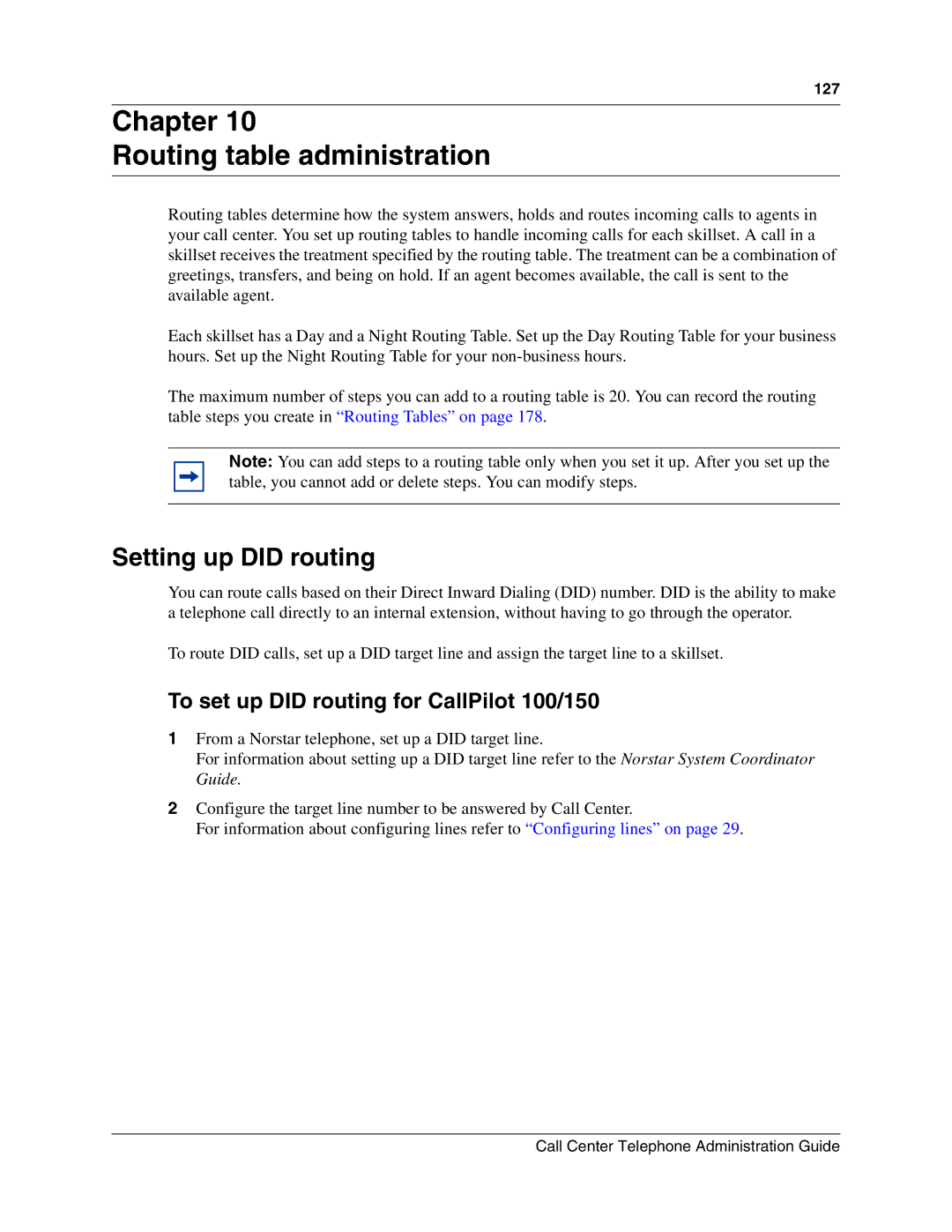
127
Chapter 10
Routing table administration
Routing tables determine how the system answers, holds and routes incoming calls to agents in your call center. You set up routing tables to handle incoming calls for each skillset. A call in a skillset receives the treatment specified by the routing table. The treatment can be a combination of greetings, transfers, and being on hold. If an agent becomes available, the call is sent to the available agent.
Each skillset has a Day and a Night Routing Table. Set up the Day Routing Table for your business hours. Set up the Night Routing Table for your
The maximum number of steps you can add to a routing table is 20. You can record the routing table steps you create in “Routing Tables” on page 178.
Note: You can add steps to a routing table only when you set it up. After you set up the table, you cannot add or delete steps. You can modify steps.
Setting up DID routing
You can route calls based on their Direct Inward Dialing (DID) number. DID is the ability to make a telephone call directly to an internal extension, without having to go through the operator.
To route DID calls, set up a DID target line and assign the target line to a skillset.
To set up DID routing for CallPilot 100/150
1From a Norstar telephone, set up a DID target line.
For information about setting up a DID target line refer to the Norstar System Coordinator Guide.
2Configure the target line number to be answered by Call Center.
For information about configuring lines refer to “Configuring lines” on page 29.
Call Center Telephone Administration Guide
